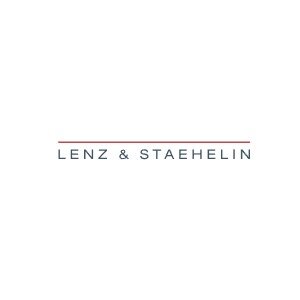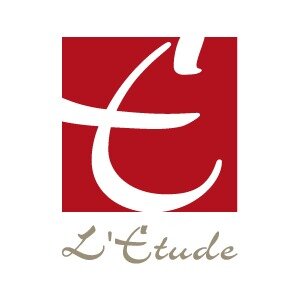Best Renewable & Alternative Energy Lawyers in Lausanne
Share your needs with us, get contacted by law firms.
Free. Takes 2 min.
List of the best lawyers in Lausanne, Switzerland
About Renewable & Alternative Energy Law in Lausanne, Switzerland
Renewable and alternative energy is an increasingly important field in Lausanne, Switzerland. Known for its commitment to sustainability and environmental protection, Lausanne has implemented various measures to encourage the adoption of renewable energy sources such as solar, wind, hydropower, and biomass. The legal landscape in Switzerland supports both private and commercial investments in renewable energy, with local authorities like the Canton of Vaud and the City of Lausanne playing important roles in project authorization and regulation. This focus on renewables is in line with Switzerland's national Energy Strategy 2050, which aims to reduce reliance on nuclear power and promote cleaner energy alternatives.
Why You May Need a Lawyer
Legal issues related to renewable and alternative energy can be complex. Individuals, businesses, and organizations may need a lawyer for various reasons, including:
- Securing permits and licenses for installing solar panels, wind turbines, or other renewable energy technologies
- Navigating zoning laws and compliance with city planning requirements
- Negotiating contracts with energy providers or landowners
- Ensuring compliance with national and cantonal regulations
- Handling disputes over property rights, grid access, or shared resources
- Understanding incentive programs and government subsidies
- Dealing with intellectual property issues for new energy technologies
- Ensuring adherence to building codes and safety standards
- Participating in energy cooperatives or community energy projects
Having a lawyer with expertise in renewable and alternative energy law can help streamline project approval, minimize risks, and safeguard your interests.
Local Laws Overview
In Lausanne, renewable and alternative energy is regulated by a combination of Swiss federal laws, cantonal (Vaud) regulations, and municipal policies. Key aspects of the legal framework include:
- Energy Act (Swiss Federal Law) - Sets national targets and frameworks for energy efficiency and the promotion of renewable sources.
- Cantonal Regulations (Vaud) - The Canton of Vaud sets additional requirements for building standards, subsidies, and permitting procedures. For example, new builds may require a certain proportion of renewable energy integration.
- Municipal Initiatives - The City of Lausanne has its own sustainability and energy efficiency policies, encouraging private and business initiatives to transition to renewable energy.
- Environmental Permits and Zoning - Projects must comply with environmental impact rules and local zoning plans, often requiring public consultation for larger installations.
- Incentives and Subsidies - Both the federal and cantonal governments offer financial incentives for installing solar panels, efficient heating systems, or other energy-saving technologies.
- Grid Access - Swiss laws ensure fair access to the power grid for private and commercial renewable energy producers, though technical and legal requirements must be met.
Understanding local regulatory specifics is crucial when considering renewable energy projects in Lausanne, as non-compliance can result in delays, fines, or denial of project approval.
Frequently Asked Questions
What types of renewable energy projects are most common in Lausanne?
Solar panels on private and commercial rooftops are very common. There is also interest in small-scale wind turbines, district heating systems using biomass, and efforts to harness local hydropower sources.
Are permits required for installing solar panels on my property?
Yes, in many cases you need a permit, especially for larger installations or those that may affect the building's appearance. The process is handled by local authorities and depends on the specific characteristics of your property.
What incentives are available for renewable energy installation?
Both the federal government and the Canton of Vaud offer subsidies and grants for adopting renewable energy technologies, including partial reimbursement for installation costs and equipment purchases.
Can I sell excess energy produced to the grid?
Yes, Switzerland’s feed-in tariff system allows private producers to sell surplus renewable energy to the grid, provided certain technical and legal requirements are met.
What are the environmental impact assessment requirements?
Large projects may require a formal environmental impact assessment to evaluate any potential risks or disturbances. Smaller residential installations may not require a full assessment but must comply with basic environmental regulations.
Is it possible to join or start an energy cooperative in Lausanne?
Yes, there are opportunities to participate in or form energy cooperatives, which allow groups to produce or purchase renewable energy collectively. Legal guidance is recommended for setup and governance.
How can businesses ensure compliance with energy regulations?
Businesses should consult with legal and technical experts to ensure their projects meet federal, cantonal, and municipal requirements, including building codes and environmental standards.
Are there restrictions on the types of renewable technologies allowed?
Some installations, like wind turbines or large solar farms, may face restrictions due to zoning, noise, or landscape protection regulations. It is important to verify local rules before starting a project.
Do building renovations need to include renewable energy components?
Depending on the scope of the renovation and the age of the building, there may be requirements to improve energy efficiency or to include renewable energy technologies.
Who enforces renewable energy laws in Lausanne?
Enforcement is shared between federal agencies, the Canton of Vaud (such as the Department of Environment and Energy), and the municipal authorities of Lausanne.
Additional Resources
Several organizations and governmental bodies provide information and support for renewable and alternative energy in Lausanne and Switzerland:
- City of Lausanne Department of Energy and Environment
- Canton of Vaud Directorate General of the Environment
- Swiss Federal Office of Energy (SFOE)
- Swiss Association for Environmentally Friendly Energy (SSES)
- Swissolar (Swiss solar energy professional association)
- Local energy cooperatives and community groups
- Legal aid services specializing in energy and environmental law
Next Steps
If you are considering a renewable or alternative energy project in Lausanne, it is important to gather all relevant information and consult with knowledgeable professionals. Here are recommended steps:
- Assess your project to determine legal requirements and potential challenges
- Contact local or cantonal authorities for guidance on permits and subsidies
- Consult with a lawyer experienced in renewable and alternative energy law to review plans, ensure compliance, and draft necessary documents
- Reach out to professional associations or cooperatives for practical support and shared experiences
- Monitor deadlines for applications and follow all administrative procedures carefully
Taking these steps will help ensure your renewable energy project in Lausanne proceeds efficiently and in compliance with all relevant laws and regulations.
Lawzana helps you find the best lawyers and law firms in Lausanne through a curated and pre-screened list of qualified legal professionals. Our platform offers rankings and detailed profiles of attorneys and law firms, allowing you to compare based on practice areas, including Renewable & Alternative Energy, experience, and client feedback.
Each profile includes a description of the firm's areas of practice, client reviews, team members and partners, year of establishment, spoken languages, office locations, contact information, social media presence, and any published articles or resources. Most firms on our platform speak English and are experienced in both local and international legal matters.
Get a quote from top-rated law firms in Lausanne, Switzerland — quickly, securely, and without unnecessary hassle.
Disclaimer:
The information provided on this page is for general informational purposes only and does not constitute legal advice. While we strive to ensure the accuracy and relevance of the content, legal information may change over time, and interpretations of the law can vary. You should always consult with a qualified legal professional for advice specific to your situation.
We disclaim all liability for actions taken or not taken based on the content of this page. If you believe any information is incorrect or outdated, please contact us, and we will review and update it where appropriate.











